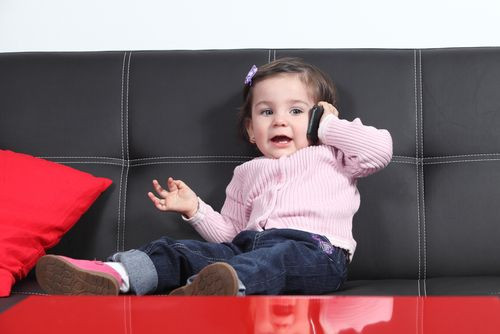Talk To Me: Genetics Influence Language Development In Babies

Parents may be well aware that how much and what they speak to their kids influences how well children pick up a particular language. While the role of environment in language building skills cannot be discounted, according to new research, it is genetics that contributes to the development of language during infancy.
This was the discovery made by scientists from the Medical Research Council (MRC) Integrative Epidemiology Unit at the University of Bristol, who in collaboration with scientists all over the world found that genetic changes near the ROBO2 gene is directly linked to the number of words spoken by children in the early stages of language development. The study has been published in Nature Communications.
Healthy kids, in general, start speaking words at 10 to 15 months of age, and the skill develops with age. At 15 to 18 months, children can speak around 50 words, 200 words at 18 to 30 months, 14,000 words at 6 years old, and over 50,000 words by the time they leave secondary school.
The researchers found that a specific genetic region on chromosome 3 influenced speech ability in infants. Chromosome 3 has earlier been implicated in connection with speech and learning disorders, such as spelling, reading disability, or dyslexia. This is because chromosome 3 carries the gene ROBO2 that plays a vital role in speech development.
This gene contains the instructions for making the ROBO2 protein, which directs chemicals in brain cells and other neuronal cell formations that may help infants to develop language and also produce sounds. In the current research, scientists studied speech-forming abilities in over 10,000 infants aged 15 to 18 months, when they typically communicate with single words. ROBO2 protein also closely interacts with other ROBO proteins that have previously been linked to problems with reading and the storage of speech sounds.
"This research helps us to better understand the genetic factors which may be involved in the early language development in healthy children, particularly at a time when children speak with single words only, and strengthens the link between ROBO proteins and a variety of linguistic skills in humans,” lead researcher Dr. Beate St. Pourcain said in a statement.
The results of this genetic analysis corroborated earlier findings on speech development conducted on twins — that genetics influence language development. These earlier researches have shown that a twin has an 80 percent chance of having language disability if his or her identical twin also has it. But in case of fraternal twins, there is only a 42 percent chance of shared learning disability.
Source: St. Pourcain B, Haworth C, Smith D, et al. Common Variation Near ROBO2 is Associated with Expressive Vocabulary in Infancy, Nature Communications. 2014.
Published by Medicaldaily.com



























